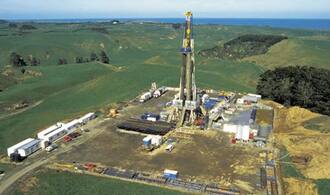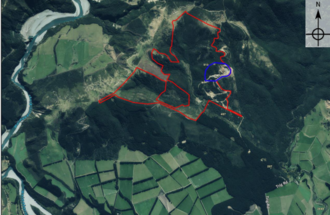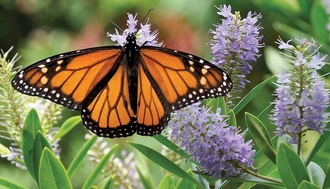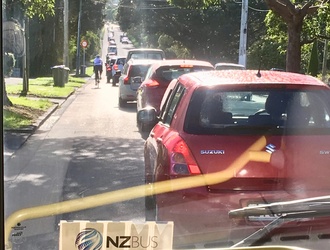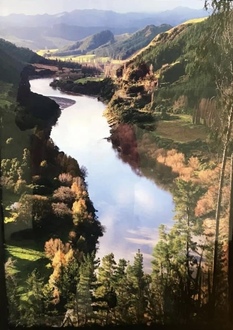-
Investigate rationing fossil fuel use with Tradable Energy QuotasTo ensure a safe, stable climate, we need a dramatic reduction of fossil fuel use and reductions in carbon emissions. In the face of the climate emergency, our methods must also restore biodiversity and ensure the health of land, air, and water in Aotearoa. Yet 2022 apparently saw record emissions from the use of oil, gas, and coal (final figures yet to be published). 🔥 The Emissions Trading Scheme (ETS) is the cornerstone of New Zealand’s climate mitigation plan. Yet, for political reasons, price-based schemes such as the ETS and carbon taxes simply can’t reliably deliver the explicit reductions now required. Prices high enough to change behaviour could risk excluding many from essential energy needs. Prices too low will be a waste of time. Only by tackling inputs rather than emissions will we achieve the required outcome with certainty. In our view, the fairest and simplest way to turn this around is to ration the use of fossil fuels through a method called Tradable Energy Quotas (TEQs). TEQs are a rationing system to ensure a reduction in fossil fuel use and greenhouse gas emissions. 🌏 TEQs would set a weekly energy ration granted equally to everyone driving age and over. Total quotas would be collectively capped to meet our climate goals and will decline each year, ensuring a reduction in emissions. TEQs would be deducted when purchasing petrol, diesel, coal and fossil fuel-generated electricity. It is equitable and involves everyone in the solution. People with money will still be able to pollute more by purchasing more quotas. But because TEQs will be decreasingly available over time, they will not be able to do this for long. Government and businesses will be able to buy quotas, the price being set at a weekly tender. The scheme will incentivise everyone to find creative solutions to lower emissions. The national TEQ price would be determined by national demand. Because of this, it will be in everyone’s interest to reduce our energy demand and to work together, encouraging our sense of common purpose. TEQs do not reduce emissions by increasing price - that is what ETS and Carbon Taxes do. TEQs control emissions directly by controlling the quantity of fossil fuels in the economy. It also makes measuring emissions easier - this can be easily calculated from the emissions equivalent of the annual TEQ amount. TEQs offer us a sensible and practical way forward to a thriving future. Do we have the courage and compassion to grasp it? ✍🏼 Sign and share our call to investigate the TEQ scheme! This petition is also hosted on the Parliamentary website. TEQs are a neat solution proposed by the late David Fleming, a British economist. Find out more at https://www.degrowth.nz/ TEQ References https://www.degrowth.nz/blog/teq TEQs at a glance https://www.flemingpolicycentre.org.uk/teqs/83 of 100 SignaturesCreated by Deirdre Kent
-
Diesel-free Auckland 2025🌏 We need to accelerate our transition away from dirty fossil fuel vehicles to avert climate collapse and clean up the air our tamariki breathe. Low emission zones are now common in many European cities as a way to ensure cleaner air for people living in cities. The low emission zones tax fossil fuel vehicles and are automatically enforced by cameras that can read number plates. We often think of New Zealand as being clean and green. Yet car pollution causes the death of thousands of people in New Zealand every year! Children, pregnant women, people with lung disease and other vulnerable groups are especially affected by air pollution from cars and trucks. Recent research in New Zealand has shown pollution from fossil fuel cars is more dangerous than all other forms of air pollution. Older diesel vehicles especially cause more air pollution than petrol vehicles. 🌏 The Auckland car pool is extremely diesel reliant (23% of the New Zealand vehicle fleet), so we really need to de-incentivise the purchase and use of diesel vehicles in urban areas where people live and work. While there have been some steps to reduce harmful emissions, the number of diesel vehicles on the roads continues to rise. 🌏 If the low emission zone was phased in it could target older diesel models first, to get the worst polluting vehicles off the road first. If done right the policy will have the effect of moving more people into public transport, electric vehicles, and active transport. There can be complementary policies to encourage non-polluting vehicle use. 💚 Discouraging diesel vehicles from Auckland will help keep children healthy, prevent diseases such as asthma, and as a result improve their learning, school performance and quality of life. Given what us older generations have done to the planet and the future of our tamariki, we owe them this! 💚 🚙 Many people presently depend on diesel powered vehicles for access and mobility. As part of a just transition we support and encourage measures such as universal design, to ensure disabled, and people of all communities are not left behind. 🚗 ⇨ Air pollution from cars killing thousands of NZers yearly, RNZ ⇨ Reducing harmful vehicle emissions from road transport, Ministry of Transport ⇨ London saw a surprising benefit to fining high-polluting cars: More active kids, Grist ⇨ Low emissions zones, Denmark17 of 100 SignaturesCreated by Frederik Federspiel
-
Stop the government giving millions more free carbon credits to polluters!This year we have experienced climate chaos firsthand with three devastating climate related storms in three weeks. The Emissions Trading Scheme (ETS) is New Zealand’s biggest tool to reduce climate pollution. But a new law going through Parliament aiming to update the Emissions Trading Scheme (ETS) could in fact allow even more pollution. A new clause adds in a mechanism to “reevaluate” which companies qualify for free carbon credits (Industrial allocations ) which could drastically increase the number of companies which get a free pass to pollute. It could also give some companies an increased number of free credits! What’s more, this whole scheme of free credits was originally meant to be phased out by 2030 but now this bill is proposing to enlarge the scheme and hand out even more free passes to pollute! For example, what could this Bill mean for a company like Fonterra? Fonterra’s lactose and whey manufacturing currently gets free credits to cover 57% of its emissions. Under this Bill, this could potentially increase to 87% free, and those extra free credits would be worth around $2M per year! But that’s not all. Fonterra’s other manufacturing operations like milk drying don’t currently qualify at all, but might under the changes in this Bill. Those operations emit over 1 MILLION tonnes a year, so if they did qualify, the extra free credits could be worth tens of millions of dollars annually… 🔥🌏 This is absolutely unacceptable in a climate crisis. 🌏🔥 Please sign our petition to • stop the Bill’s backward steps giving even more companies free credits and increasing the amount given to some companies • change the Bill to ban any new companies from getting free passes to pollute and to phase the free credit scheme out faster for existing companies. • Support the parts of the bill which do cut back insanely high free emission credits some companies have received. Thanks, Emily & Tim (Climate Club & Coal Action Network Aotearoa)3,453 of 4,000 SignaturesCreated by Emily & Tim (Climate Club & CANA)
-
Scuttle SailGP Lyttelton for Hector's DolphinsUpokohue/ Hector's dolphins are one of the rarest marine dolphins in the world. They are found mostly on the east coast of the South Island and have a conservation status of ‘nationally vulnerable’. Hector's dolphins are under many threats. A small population lives in Lyttelton Harbour and is already threatened by industrial activities, noise and massive cruise ships. SailGP is a high speed race where boats foil. It is like a Grand Prix racing car competition on water. The race course overlaps the area Hector's occupies. Hector's dolphins are at serious risk of boat strike injury or death. Lyttelton is a Hector's dolphin Marine Mammal Sanctuary and no place for a high speed race. We acknowledge the role of the Te Roopū Tiaki Whakaraupō Advisory Group in advocating for dolphin protection, and Ngāti Wheke's kaitiakitanga role. We believe the best protection for Hector's dolphins is to not hold the race in Lyttelton at all. Facts about Hector’s and Māui dolphin, Department of Conservation SailGP pulls controversial dolphin deterrent, Newsroom Comment: SailGP set to blast into Lyttelton, Northern Advocate1,309 of 2,000 SignaturesCreated by Christine Rose
-
Say no to The Willow Project!!Our planet cannot afford any more major drilling projects due to already out-of-control climate change. Especially due to rising water levels, New Zealand will be subject to drastic effects. This includes more natural disasters, effects on farming industries, and housing. We need to urge US President Joe Biden to decline the Antarctic oil drilling project alongside our international supporters. The ‘Willow Master Development Plan’ is a proposed oil project in Alaska. The 30 year project would extract huge reservoirs of petroleum stored on the Alaskan North Slope. It is said doing so could produce up to 180,000 barrels of oil a day, which is around 1.5 per cent of the total U.S. oil production. Five drilling sites have been proposed by the project builders, ConocoPhillips Alaska. The USA has enough oil to date to meet their country’s need, and extracting more oil for political and business reasons is a selfish and unnecessary step for humanity in the 21st century. The Willow Project could have a devastating impact on the western Arctic, jeopardising indigenous communities, polluting the water supply and air quality, and disrupting animal migration flows through the region. Not to mention the drastic effect it will have on the global supply chain and ecosystem. If this project is approved, many animals including polar bears, seals, arctic birds will be affected. The eco-system is already finely balanced. Climate change could become irreversible. More animals will become endangered and we may not be able to rectify what was done, for at least decades to come. It’s vital we take action - to verbalise our concerns on this matter now will show the huge global concern. The Biden administration has the ability to deny the permits to stop this climate disaster before it starts. We have international and USA supporters who are against this project. It’s time to do our part in saving the planet if we stand up and vocalise our concerns NOW. The Government here has already banned new offshore oil and gas exploration. As we take action in Aotearoa, we have an international role to also support climate action and climate justice everywhere. Every country needs to urgently transition off fossil fuels and ramp up investment in sustainable technologies. It’s so important we care for our planet as we depend on the health of the Earth for our own health. When we all come together as one to support the land and environment that has brought our communities closer, so we can support the next generations for a better future. We urge you to share our concerns so we can have a fighting chance to assist and nurture our planet as she nurtures us. Let’s protect the future for centuries to come! Stop the Willow Project - sign the petition! Find out more: https://apnews.com/article/biden-oil-alaska-willow-conocophillips-d834b0d258e357e976e85f4d59dab19a https://www.washingtonpost.com/climate-environment/2023/03/01/willow-project-biden-conoco-phillips/8,567 of 9,000 SignaturesCreated by Tanya Dewan
-
Phase out the import and sale of cars that run on petrol and diesel.Urgent action is needed as we face a climate emergency that threatens all life on Earth. Globally, the continued global rise in sales of SUVs pushed their climate-heating emissions to almost 1bn tonnes of carbon dioxide in 2022, according to the International Energy Agency. Here in Aotearoa, transport is responsible for 37 per cent of greenhouse gas emissions and is the second biggest climate polluter after agriculture. In 2023 the gas-guzzling Ford Ranger and Toyota Hilux were the top-selling vehicles. Big SUVs are dangerous for other people on the road, particularly children, people on bikes and pedestrians, they impact people's health with more harmful pollution and they drive the climate crisis. Transport emissions have to come down, but instead of relying on fuel price increases which are unworkable and unfair for lower-income families already suffering the cost of living crisis, the Government should take action to remove the worst vehicles from our roads.280 of 300 SignaturesCreated by Nick Young
-
WOMAD: Drop the oil sponsors!We love WOMAD as an international festival that celebrates diversity, and brings artists together from all over the world. At the same time as we come together to celebrate we remember we’re in a climate crisis fueled by the profits of companies extracting as much oil and gas as possible. We know that the oil industry has knowingly created the climate crisis. This is why it’s staggering to see WOMAD take money from the oil and gas industry. Climate change is an injustice that disproportionately affects our neighbours in the Pacific, indigenous people, and people in the majority world. These are the people who are also the least responsible for causing it. We understand it costs a lot to put on a great event like Womad. But the costs we’re all paying from the actions of climate criminals such as the oil corporations are not sustainable. As the global climate crisis intensifies each year with more fires, floods and droughts, we can’t help OMV continue to search for more fossil fuels to burn. Just 100 companies are responsible for more than 70% of the world’s carbon emissions. OMV is one of those companies. Companies like Todd and OMV are greenwashing their dirty business by sponsoring family-friendly music festivals like WOMAD. Todd Corporation companies and Austrian oil giant OMV were New Zealand’s number 6 and number 8 biggest climate polluters respectively in 2021. On the other hand WOMAD is in a unique position to use its platform to take a stand and protect the values it promotes. If WOMAD ended its fossil fuel sponsorship of future festivals, it could have a big impact. History has shown that when people, businesses, and brands publicly distance themselves from those who are causing harm, they can spark action in many others. For the love of art, music, and everything we hold dear, let’s tell WOMAD that the time has come to take a stand. https://www.womad.co.nz/info/sponsors/ https://www.stuff.co.nz/environment/climate-news/130991637/new-zealands-biggest-climate-polluters-ranked https://www.stuff.co.nz/taranaki-daily-news/slider/6547567/On-line-strike-at-festival-backers https://www.rnz.co.nz/news/national/464595/company-allowed-to-search-for-oil-and-gas-off-taranaki-coast-despite-ban2,041 of 3,000 SignaturesCreated by Climate Justice Taranaki
-
Stop the Woodstock landfill!The Oxford Ohoka area is a pristine back country area close to the foothills of the Southern Alps. The aquifers underneath feed most of the Waimakariri and Christchurch water schemes. Yet this beautiful place is at risk of becoming the dumping ground of toxic waste, soil contaminants, demolition and rubbish. Woodstock Quarries Ltd are applying for five resource consents from ECan and one with Waimakariri District Council (WDC) to expand an existing hard rock quarry and construct a landfill on their quarry site at View Hill. The landfill would take hazardous waste and spread across 12 hectares, with a volume of about 4 million cubic metres. It would accept about 100,000 cubic metres a year of construction and demolition waste including hazardous materials, asbestos, industrial waste and contaminated soil. This proposed landfill will create multiple environmental risks over time. We are very concerned with the possibility of toxic materials leaching into groundwater, sediment runoff, and the risk of the landfill liner failing. With increasingly severe weather there are potential risks from heavy rainfall and high winds spreading dust. We are concerned with the increase in heavy traffic, a proposed extra 20 trucks a day. The Quarry location is 900m from the Ashley fault line, which has been assessed as moderate risk, and no assessment has been made should the Alpine Fault earthquake happen. View Hill is the wrong place entirely for a landfill and the Councils must decline all five consents. Support local residents and sign our petition to stop the landfill! ✍🏼 You can make a submission against the landfill here: https://www.ecan.govt.nz/do-it-online/resource-consents/notifications-and-submissions/notified-consents/woodstock-quarries-limited/ Links https://www.stuff.co.nz/environment/130678211/residents-of-small-town-caught-off-guard-by-deadline-for-massive-landfill https://www.newshub.co.nz/home/new-zealand/2022/12/residents-from-small-north-canterbury-town-fight-to-save-countryside-from-proposed-landfill.html167 of 200 SignaturesCreated by Tracy Sayer
-
Create community focussed green spacesThe cost of food is becoming unreachable for so many of our people. At the same time, our parks are not reaching their potential as safe community and family focused environments. Food-producing plants need to be in public spaces for locals to harvest free nutritious food. Productive plants clean the air, provide much needed shade from our dangerous sun, and provide nutritious and delicious food for the people - included in existing standard rates. We would need to provide education around when the food is ready to harvest, all that would take is a small sign beneath each tree with information. People could take cuttings from the trees if they love the food it produces, and grow one in their own home garden. Our Council needs to maintain green spaces anyway, so why not add some producing plants into our green spaces? Examples of producing plants are: fruit, nut and tea trees, seasonal vegetables, herbs, and flowers for pollinators. Myself and the community would be happy to assist with design and implementation requirements. Every park could provide local families with free picnicking food during their visit. Every sports field could provide players with nutritious half time snacks. Every neighbourhood street could be a walkway for 'grocery shopping'. Let's grow edibles for strong community sharing and health focused consumption.21 of 100 SignaturesCreated by Melissa Winn
-
Make Meola Road Safe! New Zebra CrossingMeola Road can be a busy road, that gets very dangerous for school kids trying to cross the street to catch their bus. We are concerned for all our students who are putting themselves in danger by crossing such a busy road. Mistakes can be made, and we don't want to be compromising our own safety. This is very important as students are constantly at risk of being hit by a car while crossing the road to walk home or catch a bus. The safety measures that we currently have are insufficient in protecting our students.2,659 of 3,000 SignaturesCreated by WSC Travel Wise

-
Your water!.. Your future!.. No water!.. No future!Water is the very essence of all life without it nothing can survive. Cooperations and overseas investors wish to exhaust our natural resource for capital gain. We cannot drink their money. Our natural springs take many many years to replenish and the threat of a water bottling company will collapse our waterways. Future generations yet to be born will have very little or no water. We must stop this from happening. Aotearoa stand with us the Whanganui community for we are all connected by the water and it is our responsibility to protect our waterways.27 of 100 SignaturesCreated by Te Awhina Hamahona
-
Enact the right to a clean, healthy, and sustainable environment for allThe New Zealand Bill of Rights Act 1990 (BORA) protects and promotes human rights and fundamental freedoms in New Zealand. BORA, just like other legislation, can be amended at any time by Parliament. This is why it’s important to make the right to a clean, healthy and sustainable environment a part of BORA. All laws (current and future) are assessed by the rights confirmed in BORA. Having the right to a “clean, healthy and sustainable environment for all” would prevent the enactment of laws that are inconsistent with that right! A healthy and thriving environment is essential to human life and survival. Yet our Earth’s ecosystems are under threat from human activity, driven by the settings of the economic system and constant economic expansion. In Aotearoa, the environment is under immense pressure from human activities. The Our Marine Environment 2022 report and the Environment Aotearoa 2022 reports show the extent human activities are damaging our marine and land environments. We need to protect and look after the soil, water, flora, fauna and all ecosystems if we are to survive without environmental threats. One way to make this a consistent basis for all our decisions and actions is to acknowledge the basic right of a healthy and clean environment in one of our uncodified constitutional documents. This will absolutely change the way business is done, as the environment is presently sacrificed for commercial “progress”. That needs to change. There will be a process of consultation with iwi and hapū groups, as mana whenua and partners of the Crown under Te Tiriti o Waitangi, before any proposed legislation is put before Parliament. Parliament must make it clear the right to a clean, healthy and sustainable environment for all is more important than harming our environment for perceived commercial progress. ★ This one law has the potential to transform the way we view the environment in law. Sign the petition to add your power to make it happen! 🌏 Notes Climate change, human activity's alarming impact on marine environment laid bare: https://www.newshub.co.nz/home/politics/2022/10/climate-change-human-activity-s-alarming-impact-on-marine-environment-laid-bare.html Environment Aotearoa 2022 https://environment.govt.nz/assets/publications/environment-aotearoa-2022.pdf11 of 100 SignaturesCreated by Adnan Ahmed


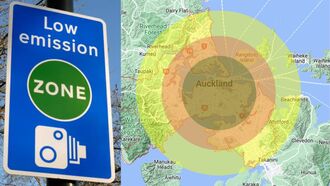
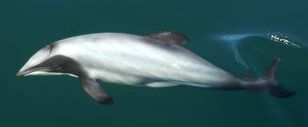
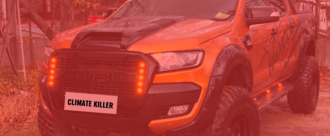.png)
